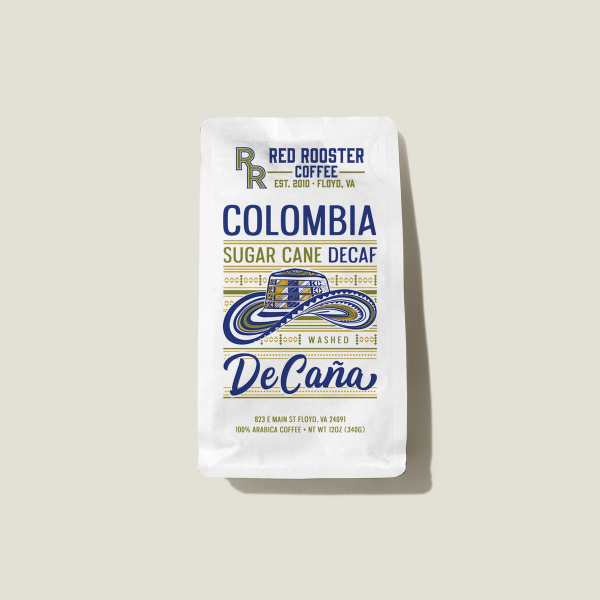Colombia Decaf De Caña
$25.50
This single origin may have left its caffeine behind, but it hasn't lost any of its complex flavors. Instead of using synthetic chemicals, this sugarcane decaffeination process utilizes a solution of mountain spring water and natural ethyl acetate to gently extract and remove caffeine while maintaining the bean's intrinsic structure. Look for notes of praline, lemongrass, and lime with a graham cracker sweetness.
Tasting Notes
- Praline
- Lemongrass
- Lime
- Graham Cracker
Details
Origin
Huila, ColombiaProcess
WashedVarietals
Castillo, Caturra, ColombiaElevation
1400-2000 maslGreen Cost
$6.27/lbClever Dripper

A combination of immersion and pour over, the Clever makes it easy to get a full bodied cup of coffee by steeping the coffee, like a French Press, then filtering it like a V60.
Sourcing & Processing
The sugarcane decaffeination process uses a solution of mountain spring water and natural ethyl acetate (EA) to gently remove caffeine from coffee beans while maintaining their natural structure and characteristics. EA is naturally present in every coffee cherry as well as many other fruits and vegetables. No synthetic chemicals, excessive heat, or high pressure are used.
Coffee cherries are picked when perfectly ripe, de-pulped the same day, and allowed to ferment in the open-air for 12 to 36 hours. The coffee is washed clean of its mucilage, dried, and sorted. The selected coffee beans are steamed for 30 minutes under low pressure, to open their pores, before being placed in a solution of water and EA. The EA bonds to the chlorogenic acid and separates the caffeine from the rest of the seed. The tank is drained and re-filled over the course of eight hours until caffeine is no longer detected. The coffee is steamed to remove all traces of EA before being dried and polished for export.
Located in the Magdalena Valley of southwestern Colombia, Huila is nestled in-between the Central and Eastern ranges of the Andes. The variation in elevation results in Huila being one of the country's most unique and complex regions of coffee production. The terroir, climate, and harvest cycles all contribute to the quality of the coffee grown here. While Huila accounts for nearly 20% of the country's production, 80% of coffee producers operate on less than three hectares.
More coffees with a medium roast profile
Need to cut the caffeine?
Try a low- or no-caffeine variety


